Evelina Demeter and Her Four Mothers
Sixteen-year-old Evelina Demeter has four mothers. The first is her biological mother, whom she does not remember, as Ukrainian social services took her into care as a child. The second is her American mother, Catherine, who hosted her during summer visits arranged by the orphanage over the past five years. The third is Maria Cavallaro, her Italian mother, who took her in when Evelina was evacuated from Ukraine after Russian tanks surrounded Kyiv in March 2022. And finally, there's Viktoria, her Ukrainian foster mother, who, together with her husband Ivan, welcomed Evelina into their home when she was repatriated last year.
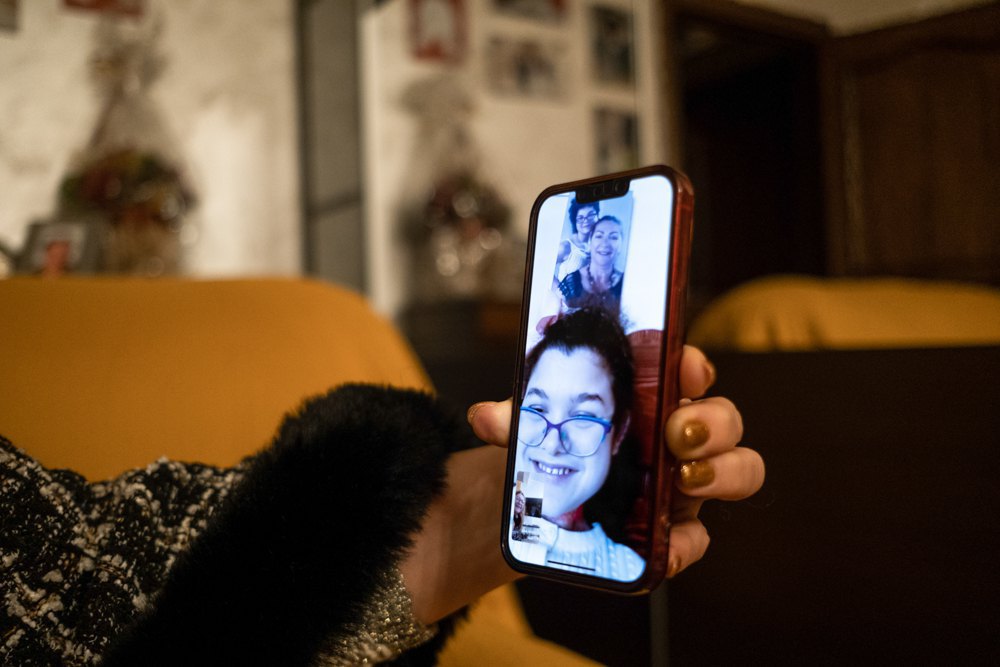
Evelina did not want to go on this final journey, and the Cavallaro family didn’t want her to return to a country at war. But an Italian court upheld the arguments of the Ukrainian government, which had demanded her repatriation.
“At Catania Airport in Sicily, when we said goodbye, my Italian mum Maria cried, and I cried too,” says Evelina, who now lives with her new foster family in Chynadiyeve, Transcarpathian Region.
Hundreds of foster families in Italy, and thousands more across Europe, are in similar situations. In total, nearly 5,000 Ukrainian children went abroad in the first weeks after the full-scale invasion began. The Ukrainian government is demanding their return, and in around half of the cases, this has been achieved. Hundreds of families across Europe have had to say goodbye to the children they took in. Others are still fighting—defying court orders and appealing verdicts. As a result, thousands of Ukrainian children have become the centre of an international dispute involving foster families, the Ukrainian government, and courts in thirteen European countries.
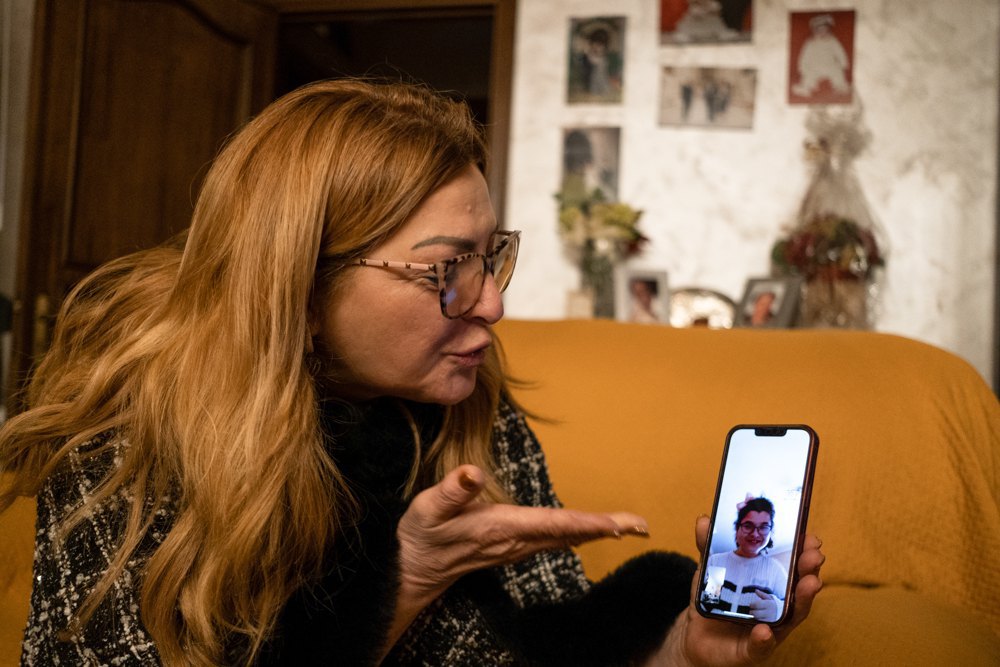
Diplomatic case?
In the first months of the war, Italian families took in over 400 Ukrainian children from orphanages, primarily in Lombardy, Sicily, and Calabria.
Among those evacuated after the invasion in March 2022 was Evelina. The Italo-Ukrainian association I Nuovi Confini, based in Catania, which had been organising so-called respite trips to Italy for years, evacuated her and dozens of other children from the school in Chynadiyeve.
“This tradition began after the Chernobyl disaster,” explains Yuliya Donnichenko, the founder of the Catania association. “Then we continued during the 2014 Donbas invasion to help children without parents or from struggling families have a peaceful summer in a distant country.”
In the chaotic days following the invasion, dozens of Italian and Spanish organisations sprang into action to take these children abroad. Most initiatives arose spontaneously, often without proper coordination with the Ukrainian government or the host countries, which quickly created new problems.
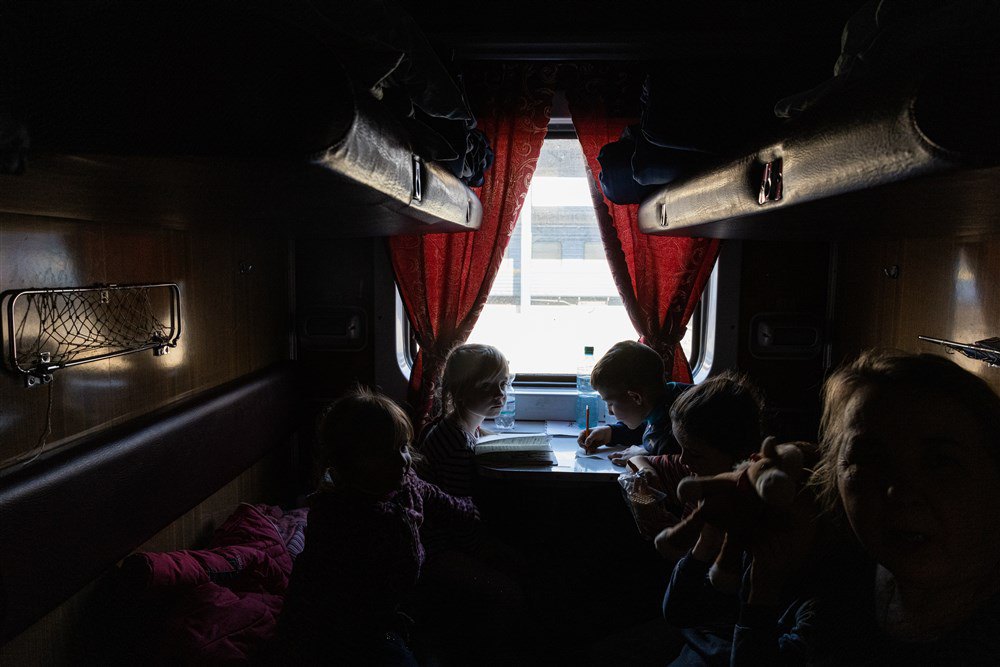
After the first emergency weeks, Ukrainian authorities acted swiftly. By mid-March, a series of decrees banned international adoptions and halted further child evacuations. As casualties mounted and fears grew that millions of families who had fled abroad would never return, concerns about the country’s demographic future increased. In summer 2022, the government began insisting that children abroad should return home despite the ongoing war.
“We’re very grateful to Italy for the support,” says Petro Dobromilskyy, head of Ukraine’s State Child Protection Service. But he also believes Italy could have done more. His department has completely lost contact with many of the children in Italy. “Even our consuls can’t reach them,” he says. The bigger issue, he adds, is legal: “According to Ukrainian law, these children remain under Ukrainian jurisdiction and may only travel abroad for up to 30 days.”
Italy, currently still hosting nearly 300 Ukrainian children, has become one of the most difficult cases for the Ukrainian government. In December last year, Ukraine’s parliament backed Prime Minister Denys Shmyhal’s request to Italian Prime Minister Giorgia Meloni to assist with repatriations. But there has been no response from Palazzo Chigi.
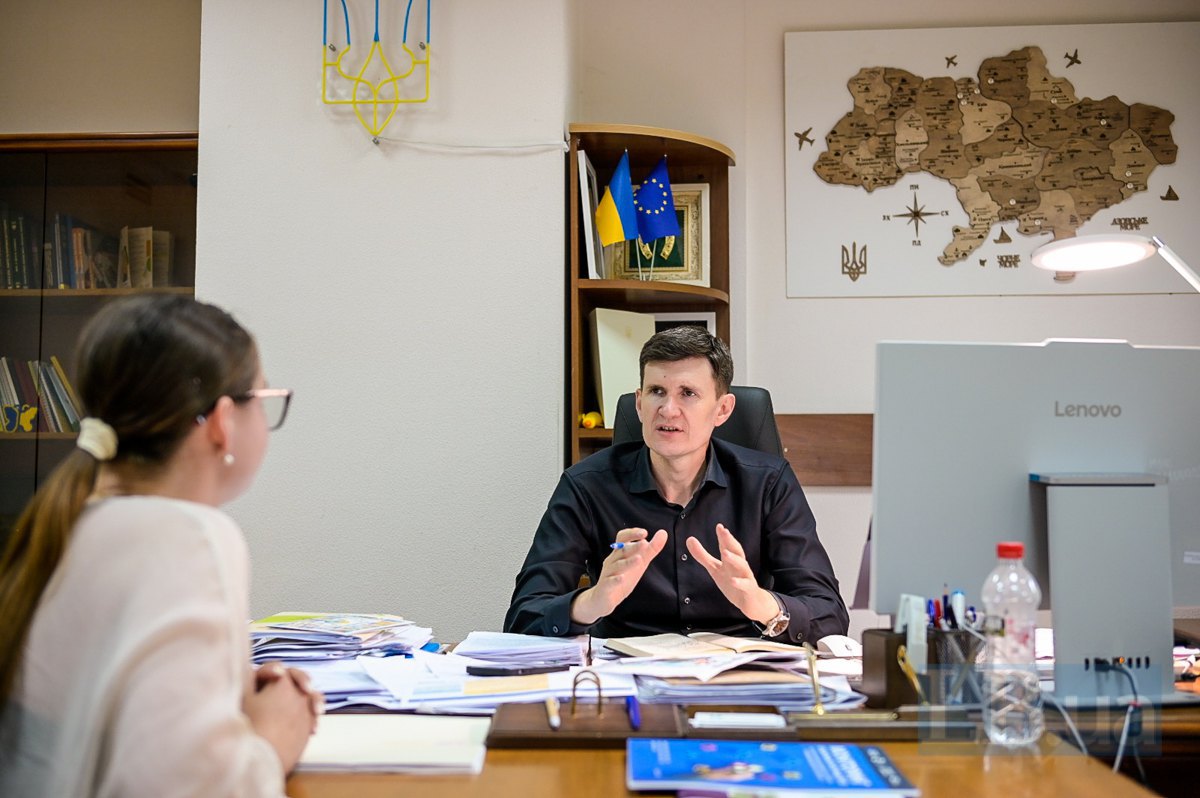
“Children will not be returned to institutions or unsafe regions. Domestic adoption demand has risen by 30 per cent—we have over 2,300 people on the waiting list,” Dobromilskyy assures.
Separation
Despite the Ukrainian government’s reassurances, in Fleri, the town in Catania province where Evelina was supposed to stay only a few weeks but remained for 16 months, her Sicilian mother still waits. “I still remember the night before she left—she hid under the bed crying, begging not to go back to a country being bombed,” says 62-year-old Cavallaro, in the guest room where Evelina lived for over a year and where all her dolls still lie on the bed. “From her stories, Ukrainian orphanages seemed unfit places to grow up—poor hygiene, undernourishment, low education. And I doubt the war improved things.”
Many foster parents criticise the Ukrainian authorities and courts for not listening to the children’s wishes. While some did want to return to reunite with siblings left behind, many—especially teenage boys nearing adulthood and facing possible conscription—preferred to stay in Europe. “It was cruel to let them taste freedom in a peaceful country with a future, only to tear it away,” Cavallaro explains. But fearing legal consequences, she had to let Evelina go. “For over a year, I heard nothing—I thought she’d vanished into the system.”
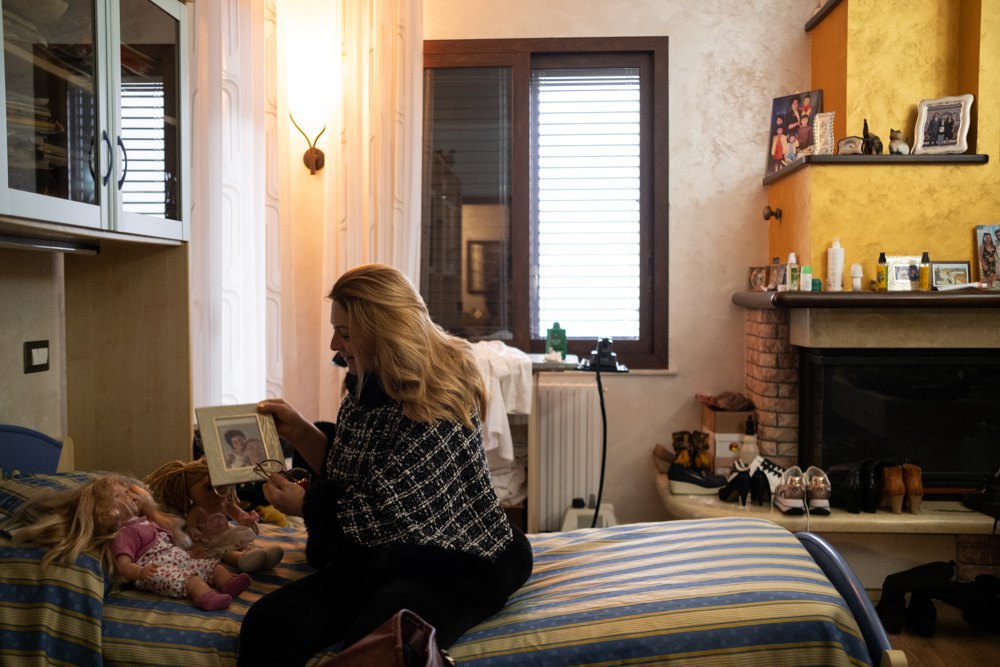
Then one day she received an unexpected Telegram message: “Hi mum, it’s me, Evelina. I’m okay.” Since then, to Maria’s relief, they’ve spoken daily. Between shifts working as a beekeeper on the slopes of Mount Etna, Maria reminisces about her time with Evelina. She hopes they’ll reunite one day. Evelina tells her she plans to go to America once she turns 18, where her mother Catherine promised to take her in. She sees no future for herself in Ukraine and would rather not return.
Some families from Evelina’s group have managed to extend their foster arrangements after lengthy, costly legal battles. These cases have even involved Ukrainian citizens who accompanied the children to Italy. Donnichenko, who coordinated the placement of orphans in Catania, is now under investigation for alleged abuse and threats against minors, as well as misuse of her guardianship role, after she filed a kidnapping report against two Catania families who opposed repatriation. Donnichenko denies the charges and says: “The temporary nature of these programmes was always clear. Their stay was already extended far beyond what was agreed, but now they must return.” The events illustrate that in the struggle over where these children belong, the rights of the children themselves have often been compromised by both sides.
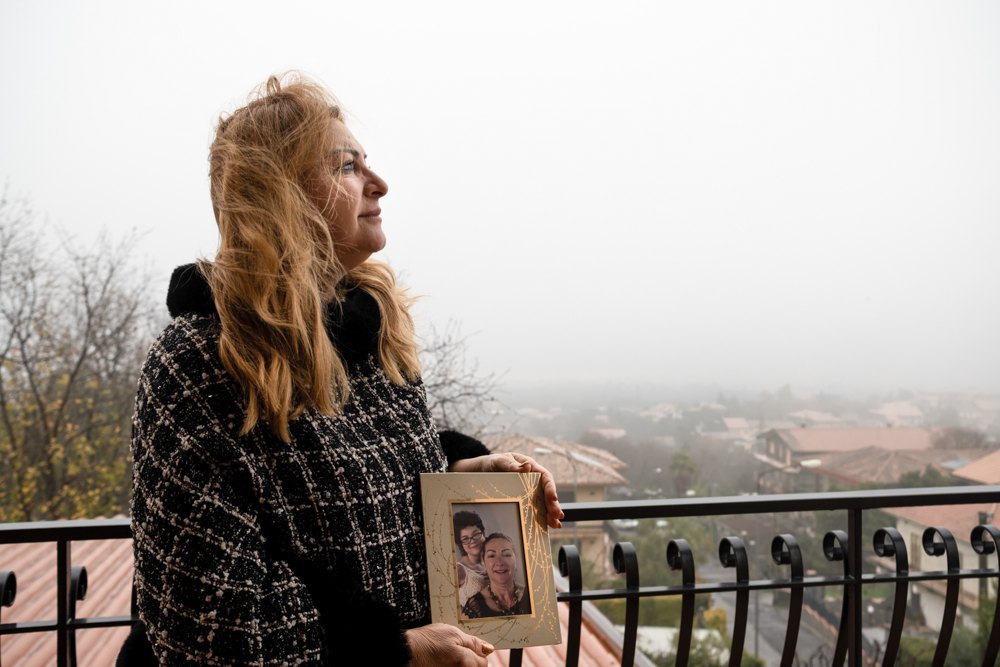
The Spanish Case
The situation is so chaotic that courts across different countries often issue contradictory rulings.
Spain, another major host of Ukrainian orphans, presents a similar picture. In Catalonia alone, local families have taken in 391 minors since February 2022, according to the region’s Department of Social Rights. Over two-thirds have returned to Ukraine, while more than 100 remain thanks to complex legal battles.
In January 2024, an association that had helped relocate Ukrainian children to Terrassa, near Barcelona, announced that they must return home as soon as possible. Two foster families refused.
Their lawyer explained that the teenagers—Diana and Oleh—insisted they did not want to go back, citing not only the war but past abuse in their Ukrainian families. But the Catalan Child Protection Agency, which held parental authority over the children during their stay, was still prepared to send them back, according to lawyer Claudia Morato.
Only a judge’s intervention halted Diana’s repatriation. In court, lawyers argued Ukraine had failed to comply with international conventions on child protection in their repatriation requests. In fact, the documents submitted lacked official government stamps, which Morato believes cast doubt on their authenticity.
“There was no transparency or accountability in the agreements made between states,” the lawyer says.
The school in Chynadiyeve, where Evelina lived, is located by a small stream in a forested area at the foot of the Carpathians. It’s a new building with a small pool, kitchens, and dormitories housing five to six children each. While the school has a gym and classrooms, the resident children—orphans or those under social care—usually attend local schools.
When we arrive, in addition to headmistress Viktoriya Senkovets, we are met by the school’s lawyer and a representative of the regional government—proof of just how sensitive this issue is in Ukraine. The director says 25 of the children entrusted to the school are still in Italy. The families, she claims, allow no communication—not even Ukraine’s consul in Italy has managed to reach them. In her view, if the Ukrainian and Italian governments could agree, the best solution for everyone could be found.
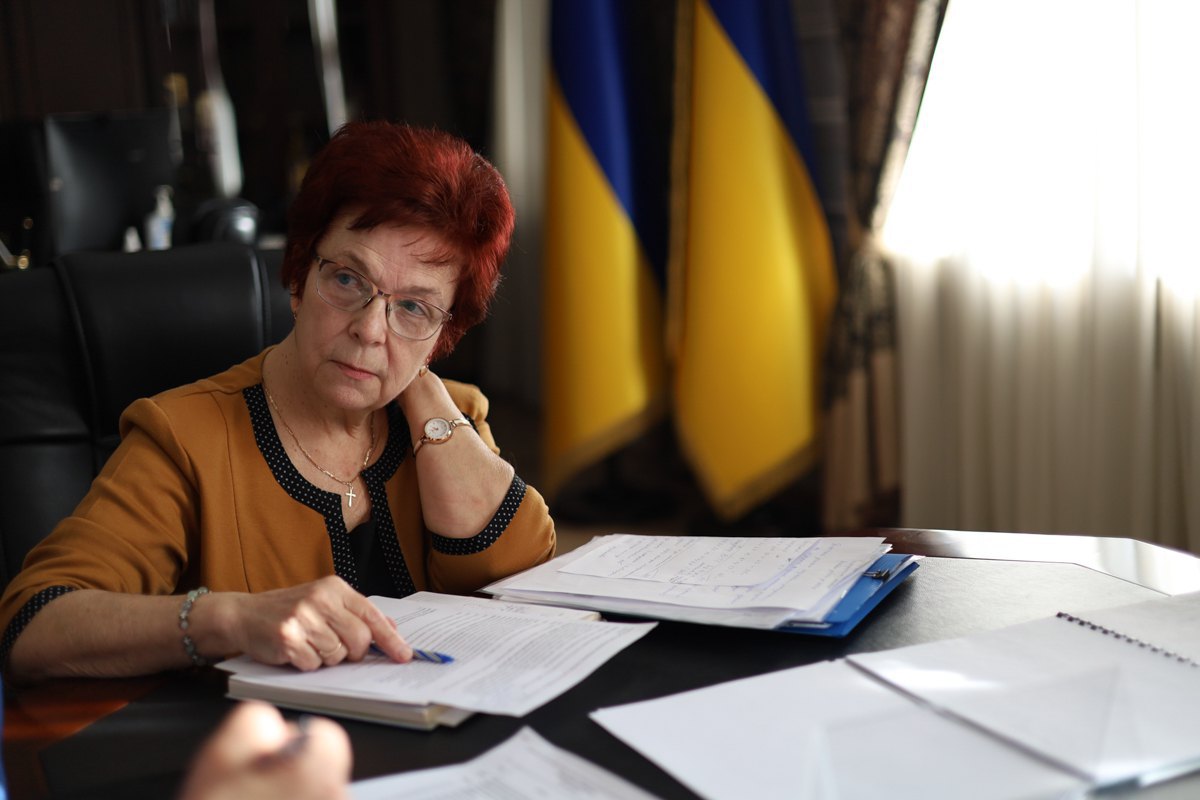
Seventy-four-year-old Svitlana Sofilkanych worked with children for 43 years, the last 20 as director of the Chynadiyeve school before retiring last year. She signed the documents allowing Evelina and others to travel to Europe. She’s kept in touch with many of them—others, she says, are unreachable. “Calabria is completely closed off,” she says. “We’ve lost contact with the children who went there.”
She remains close to Evelina, who considers her a sort of fifth mother. Today, she believes Evelina might be better off in Italy. But the government is adamant. “The child protection service ordered me to bring them all back to Ukraine,” she recalls. “But there are no resources to carry this out, and now the government is looking for scapegoats.”
Legal proceedings across Europe require resources and staff that Ukrainian consulates simply don’t have. As the process drags on, orphanage workers face criticism, accused of allowing Europeans to "steal" Ukrainian children. Sofilkanych says the accusations hurt deeply—she’s dedicated her entire life to caring for children. But in her view, the real tragedy is the limbo the children now face. Resolving it, she believes, requires cooperation between governments, courts and families—each case must be evaluated to decide what truly serves the children’s best interests.







